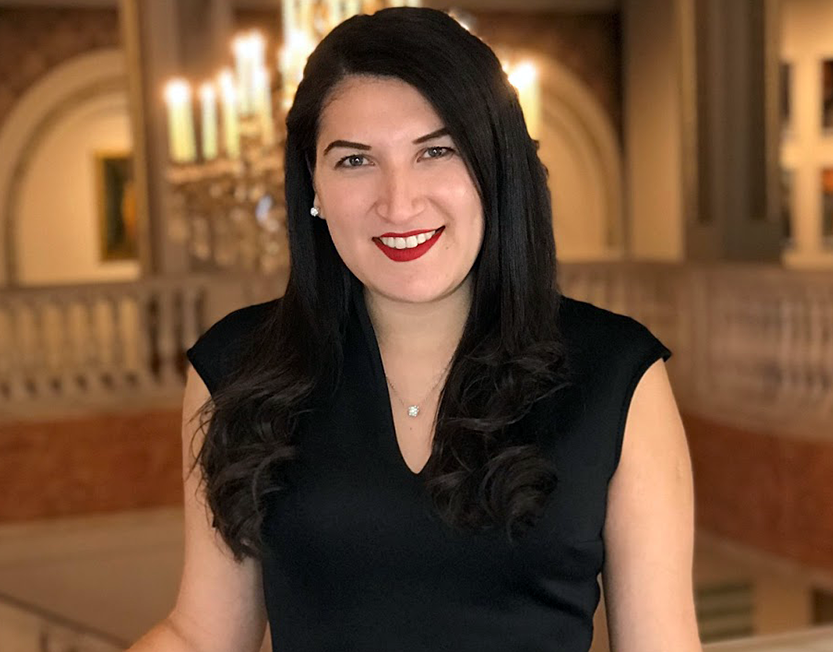Georgetown University School of Medicine has named Isela Melendez-Carpio as its new director of diversity and inclusion, GUSOM announced in a tweet Jan. 17.
Melendez-Carpio will lead strategic initiatives related to diversity, equity and inclusion and organize diversity-focused programming and unconscious bias training in her new role, according to the announcement. Prior to joining GUSOM, Melendez-Carpio worked as the assistant director of academic and student affairs at the McCourt School of Public Policy.

As a Latina first-generation college student and immigrant from a low socioeconomic background, promoting diversity and inclusion within the field of medicine is an important issue to Melendez-Carpio, she wrote.
“I see this as an opportunity to continue expanding the pool of diverse doctors, especially as our country continues becoming more diverse,” Melendez-Carpio wrote in an email to The Hoya.
GUSOM launched its Office of Diversity and Inclusion in August 2015 with the goal of advancing diversity and inclusion for its students, faculty and staff, according to the GUSOM website. In line with its goal, the Office of Diversity and Inclusion runs a number of programs, including the Georgetown Experimental Medical Studies program, a one year post-baccalaureate program that aims to recruit and mentor students from disadvantaged backgrounds in the field of medicine.
As director of diversity and inclusion, Melendez-Carpio will build upon the school’s mission to promote diversity in medicine, according to Dean for Medical Education at GUSOM Stephen Ray Mitchell.
“Ms. Meledez-Carpio brings great experience to that vision and will help to build the trajectory and create a sense of belonging to a wonderfully innovative system of pipeline and cultural programs,” Mitchell wrote in an email to The Hoya.
Pipeline programs, like GEMS, play a key role in helping underrepresented students see medical school as a viable option, Melendez-Carpio wrote.
“The road to medical school is a long one,” Melendez-Carpio wrote. “Support systems are imperative for student success, which is why the Office of Diversity and Inclusion plays a special role in the development and growth of the populations we serve. Ultimately, we hope to prepare the next generation of health care professionals.”
GUSOM also offers opportunities to high school and undergraduate students. High school students from across Washington, D.C., can apply to GUSOM’s summer internships, which provide hands-on experiences for students to gain insight into the field of medicine. Undergraduate students can apply to the Academy for Research, Clinical, and Health Equity Scholarship, which allows select students to gain clinical experience and participate in guided research.
GUSOM strives to create a diverse workforce by recruiting and mentoring students who are likely to make a significant contribution to medicine, but whose disadvantaged circumstances may hinder their academic achievement, Mitchell wrote.
“Our patients deserve health care providers who can identify with their experiences and understand the cultural needs when making decisions affecting their care,” Mitchell wrote. “This role allows us to give a razor-sharp focus to this goal and to foster pipeline opportunities by working with high school and undergraduate students.”
Melendez-Carpio hopes to broaden Georgetown’s reach to local high schools and universities and implement alumni initiatives to continue cultivating relationships with students, she wrote.
Melendez-Carpio’s professional background has been centered around working with organizations that empower underrepresented groups, such as low-income, first-generation, LGBTQ, Black and Latinx populations. Melendez-Carpio will draw upon her past experiences to help her serve in her new position, she wrote.
“My personal and professional experiences equip me with the skills, knowledge and expertise needed to lead this effort,” Melendez-Carpio wrote. “I am deeply committed to ensuring local students from the area recognize their potential and see Georgetown as an option for their education endeavors.”
Melendez-Carpio brings both passion and professional expertise to her new role, according to Mitchell.
“Melendez-Carpio brings a deep passion to this role based on her personal experiences,” Mitchell wrote. “But equally important, she brings a set of skills and talents needed to define and redefine successful strategies with the end goal of diversifying our student body and our workforce, while ensuring a healthy and robust learning experience.”
Changing the culture of a campus to be more diverse and inclusive will take time and effort, Melendez-Carpio wrote.
“Representation matters,” Melendez-Carpio wrote. “Schools are addressing these topics through various initiatives and programming; however, we need to affect change across all sectors of society.”




















